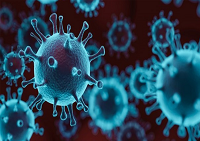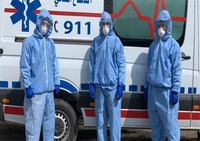Risk communication is one of the core pillars of emergency response as it plays a vital role in influencing informed decisions and making positive behavioral change.
This course explains techniques such as: advocacy to policy makers, building partnerships and alliances, communicating with individuals and communities to change risk behavior, and developing mass media campaigns.
Additionally, community participation is discussed and explored as equity and evidence-based interventions are considered as main ethical considerations in health promotion.

All health care professionals must understand the principles and demonstrate competence in preventing and controlling infections, including those that are associated with healthcare and apply this knowledge as a routine part of their prescribing practice to protect patients, visitors, their colleagues and themselves from the risk of antimicrobial resistant infection.
The principles of infection control are coupled with the science of microbial transmission and reproduction.
This course designated to provide the candidate with the basic knowledge and skill of the most important bacterial, fungal, parasitical and viral infection to prevent the transmission of organisms in health care settings.

WHO has declared COVID-19 as a global pandemic in March 2020. This COVID-19 pandemic is the defining global health crisis of our time and one of the greatest challenges we are facing recently. Governments across the world took concerted actions to protect their citizens and flatten the curve to stop the spread of the virus. The Eastern Mediterranean Public Health Network (EMPHNET) supports countries in the Eastern Mediterranean Region (EMR) to strengthen their health systems in response to public health challenges and threats. EMPHNET contributes to improving the health status of the population in the region by building the capacity of public health workforce through training in applied epidemiology, improving surveillance and outbreak investigation, partnership and exchange of experiences with associations, institutions, networks and organizations that have similar aspirations, developing and implementing public health intervention, and promoting and supporting applied public health research in response to public health challenges and needs.

